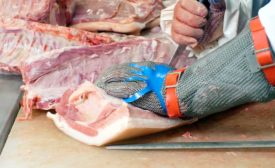Meat/Poultry
Pork and Prejudice: How the Industry's Science-Driven Approach Outshines Salmonella Standards in the Pursuit of Improving Public Health
Regardless of the proposed Salmonella performance standards, the pork industry has consistently taken proactive measures to address and mitigate Salmonella contamination risks for years
October 6, 2023
Never miss the latest news and trends driving the food safety industry
eNewsletter | Website | eMagazine
JOIN TODAY!Copyright ©2024. All Rights Reserved BNP Media.
Design, CMS, Hosting & Web Development :: ePublishing










